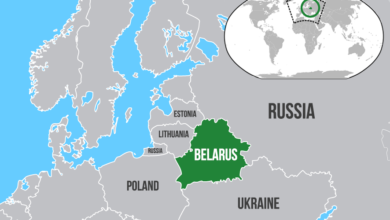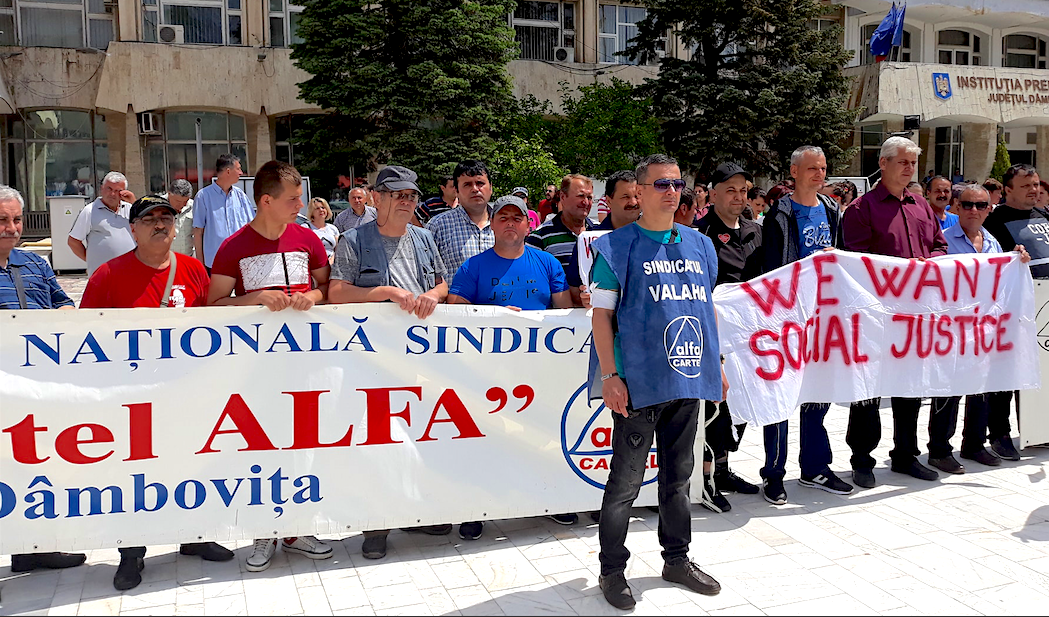On June 17, Greeks voted in the country’s second election in two months as people around the world, both the powerful and the dispossessed, held their breath. Ultimately, the conservative New Democracy party, led by Antonis Samaras, came out with a narrow victory. It won about 30 percent of the vote and the 50-seat bonus in parliament the Greek electoral system awards to the first-place party.
ND’s campaign promised to continue Greece’s membership in the eurozone—the group of 17 countries that use the euro currency. At the same time, Samaras pledged to rework some of the more severe parts of the memoranda—the austerity agreements reached between the Greek government and the European Union, European Central Bank and International Monetary Fund, collectively referred to as the Troika.
The memoranda force Greece to implement mass layoffs, budget cuts, the reduction of collective bargaining rights, large-scale privatizations and other draconian measures in return for bailouts totaling hundreds of billions of dollars to keep the country from defaulting on its enormous public debt.
While the big business media have attempted to portray Greece’s economic crisis as the result of out-of-control social spending and pampered workers, the blame lies solely with the capitalist class. The crisis of overproduction and ongoing depression that has swept the world, exacerbated in Greece by massive corruption and tax evasion on the part of the bourgeoisie, has nothing to do with actions of the working class and everything to do with the fundamental contradictions of the capitalist system.
The Coalition of the Radical Left (SYRIZA) came in a close second, garnering the support of 27 percent of voters. Although it was edged out by ND, this result represents a continuation of SYRIZA’s meteoric rise over the last few months. In May, it more than tripled its vote from the previous election—going from less than 5 percent to nearly 17 percent. Under the leadership of Alexis Tsipras, the coalition has rapidly become a central actor in Greek politics.
Similar to New Democracy, SYRIZA made assurances in the run-up to the election that it was committed to keeping Greece in the eurozone. However, rather than modifying the existing memoranda, SYRIZA pledged to reach a new agreement with the Troika that postponed payments on Greece’s debt while ending the austerity measures. It argued that it could use as leverage in the negotiations the devastating economic contagion that could result from Greece’s exit from the common currency.
Despite benefiting from the Greek electoral system’s undemocratic “reinforced proportionality,” New Democracy only received 129 seats in the 300 member parliament and had to find at least one other coalition partner to secure the majority required to form a government. The obvious choice was the misnamed Pan-Hellenic Socialist Movement (PASOK), which for the last 40 years occupied the political “center-left” and alternated power with ND in an arrangement akin to the two-party system in the United States. PASOK was seen as the other “pro-bailout” party along with ND, having negotiated and passed the memoranda in the first place.
PASOK secured a humiliatingly low total of 33 seats in parliament, which was enough to give an ND-PASOK coalition a majority. But Samaras looked to the small Democratic Left party of Fotis Kouvelis to provide a leftist fig leaf to his pro-austerity government. Kouvelis was a former leader of SYRIZA until he led a right-wing split in 2010; he and Democratic Left have called for the “gradual” cancellation of the memoranda.
Ultimately, the leaderships of both PASOK and Democratic Left knew that an ND-led government would be extremely unpopular and wanted to mitigate the effect joining it would have on their parties’ popular support. They agreed to support the government from parliament but not commit any officials to the new cabinet. Samaras was sworn in as prime minister on June 20, faced with a laundry list of additional anti-people measures to implement, a fragile coalition with a thin majority, and the prospect of renewed militant struggle by the Greek working class.
A further outcome of the latest election was the sharp falloff of the Communist Party’s vote. While it registered a modest rise to 8.5 percent support last month, the KKE received only 4.5 percent of the vote this time around. The KKE’s campaign focused on exposing SYRIZA’s perspective of achieving via electoral means relief from capitalist austerity within the framework of continued membership in the European Union and use of the euro. The KKE also emphasized the necessity of the extra-parliamentary struggle of the working class and its allies against monopoly capitalism, demanded Greece’s withdrawal from both the EU and NATO, and called for the repudiation of Greece’s debt.
No doubt a significant factor in the decline in the KKE’s vote was the huge propaganda campaign in the capitalist media—echoed by sections of the left—warning of the catastrophic consequences if Greece were to default on its debt and withdraw from the EU and the euro.
At the same time, the neo-Nazi Golden Dawn party defied expectations and saw its vote remain the same as the last election—7 percent. Over the last month, the fascists have engaged in holocaust denial, intimidated journalists and carried out murderous attacks on immigrants. A high-profile incident in which Golden Dawn spokesman Ilias Kasidiaris assaulted on live television KKE leader Liana Kanelli, who confronted Kasidiaris after he threw a bottle at a SYRIZA representative, led some analysts to predict that the fascists would not even reach the 3 percent threshold to enter parliament.
The voting results make clear that Golden Dawn’s shocking entrance into parliament last month was not just the accidental byproduct of an apolitical “protest” vote. Instead, it seems that this fascist party, under the banner of ultra-nationalism directed against the EU and Germany in particular, as well as anti-immigrant racism, has managed to become a serious political force in Greece with a base of support among the extreme right-wing of the ruling class, newly pauperized middle-class elements, and a big section of the security forces.
What is SYRIZA?
The main component of SYRIZA is Synaspismos—the Coalition of Left Movements and Ecology. Synaspismos emerged as a party in its own right in 1991, composed mostly of members of a eurocommunist split from the Communist Party of Greece. Eurocommunism is a reformist trend that developed in the 1970s and 1980s and came to dominate many of the world’s major communist parties after the Soviet Union was overthrown. In 2004, SYRIZA was formed as an alliance between Synaspismos and several small communist tendencies, including groups coming from the Trotskyist and Maoist traditions.
The presence of these organizations, in addition to the departure of the internal right-wing to form the Democratic Left party in 2010, moved SYRIZA to the left. However, it did not result in the coalition adopting a revolutionary program and strategy.
Despite the lack of a homogenous outlook, the dominant political line in SYRIZA can be defined as fundamentally social democratic. Social democracy as we know it today is an ideology that originated in the more privileged sections of the working class and trade union officialdom during a period of relative capitalist prosperity in Europe prior to World War I. It promotes the expansion of social programs and other reforms to foster collaboration between the working class and the ruling class to create a “kinder, gentler” capitalism.
While “social democracy” once referred to the trend of revolutionary Marxism within the workers’ movement—and even now plays a progressive role in some oppressed countries—social democratic parties in Europe today play a a role roughly comparable to the Democratic Party in the United States, diverting the people’s struggles into harmless electoral channels while helping to preserve bourgeois rule.
SYRIZA’s politically heterogeneous makeup has forced it to lean heavily on the individual charismatic personality of Tsipras, its most prominent leader. An examination of his statements in the pre-election campaign is telling of SYRIZA’s social democratic orientation.
Tsipras asserted in a high-profile editorial for the Financial Times days before the election, “Lest there be any doubt, my movement—Syriza—is committed to keeping Greece in the eurozone.” The avenue he proposed to achieve an end to austerity while remaining in the eurozone is negotiation. Greece’s major conservative daily, Kathemerini, quoted him as saying that his party will not approach Greece’s foreign creditors “to pick a fight, but to convince them.”
Populism versus transitional demands
Revolutionary forces are faced with a new set of challenges in this rapidly changing political landscape. Of course, opposing social democracy does not mean that a revolutionary party must only raise the most extreme slogans and reject the struggle for reforms. Left apologists for SYRIZA argue that the coalition’s program represents a set of transitional demands that will hasten the development of a revolutionary situation.
Transitional demands speak to the immediate needs of the working class while at the same time being impossible to achieve within the framework of continued capitalist rule. As a result, the nature of the capitalist system will be exposed and the people will be drawn towards revolution. For example, the Bolsheviks in 1917 raised the transitional demands “land, bread and peace,” which the provisional Russian government could not grant during a period of acute economic crisis and inter-imperialist war, and were ultimately able to lead the working class to power.
SYRIZA’s 40-point election platform includes demands that may superficially seem to be transitional. It calls for the reversal of the austerity measures, raising taxes on the rich, and the nationalization of the banks and recently privatized companies. Given the context, these are indeed radical demands.
But the platform lacks the most critical component of a transitional program: the conscious revolutionary element. Transitional demands are only transitional if the organization raising them understands that they will only be carried out by a government of the working class and its allies, and consciously intervenes in the people’s struggle to strengthen this ideological pole and further the achievement of workers’ power.
While leadership is critical, a revolution in the final equation is made by the massively organized working class, not the vanguard of revolutionaries. A revolutionary organization cannot just “break the news” of the necessity of revolution to the working class after its transitional demands are not met; it has to simultaneously speak to the day-to-day struggles of the people and tell the truth about the need to take power.
SYRIZA’s program should in fact be understood as a form of populism. Instead of providing ideological leadership to the working class, it tails behind the people and demagogically repeats the often contradictory subjective desires of the masses. In the case of Greece, this is expressed by SYRIZA’s impossible pledge to keep the country in the eurozone while rejecting austerity and eliminating the worst features of capitalism.
When populists do attempt to influence the direction of the people’s movement, they lead it into a dead end. After the election, Tsipras announced that SYRIZA would not call for demonstrations against the impending wave of austerity, saying, “Solidarity and resistance are both important, but right now solidarity is the most important.” Anyone on the left knows that solidarity and resistance are one in the same, but the solidarity that Tsipras talks about refers to the false unity of oppressor and oppressed. Even in defeat, SYRIZA’s leadership is trying to deliver on its promise of stabilization.
How can the revolutionary forces in Greece combat populism and strengthen the revolutionary current in the struggles to come? Reacting on election night to the party’s poor showing, KKE leader Aleka Papariga said: “We told people the truth. … We will remain standing despite the heavy losses.”
This is fundamentally correct, but a central task of a revolutionary party is to present the truth in a way that is accessible to the broad masses of people given the prevailing level of consciousness. Like the Central Committee of the KKE said in its initial assessment the day after the election: “We must not be comforted by the fact that our political line has been borne out by the developments. We must examine the level of the party’s ability according to the criterion as to how we respond to the challenges in all conditions.”
The statement continues: “It is not enough to have a correct strategy and militancy, it is necessary for us to better study how we can acquire the greatest possible competence. … We must become more demanding and exacting regarding questions of political guidance, organization, practical orientation and activity in the working class and popular masses.”
The statement concludes with a call for “the members, friends and supporters of the party and KNE [Communist Youth of Greece] to contribute by studying and tackling the more general weaknesses and shortcomings of a subjective character … for the regroupment of the movement.”
How can the anti-people nature of the European Union and eurozone be exposed to combat the false dilemmas presented by the pro-capitalist parties? What can be done to organize the working class to become the rulers of society? How can this ultimate goal be woven into the practical struggle against the barbaric austerity measures devastating poor and working Greeks? How can the united-front tactic be employed to unite all working-class forces to combat the fascists?
These are the burning questions facing revolutionaries in Greece today.






